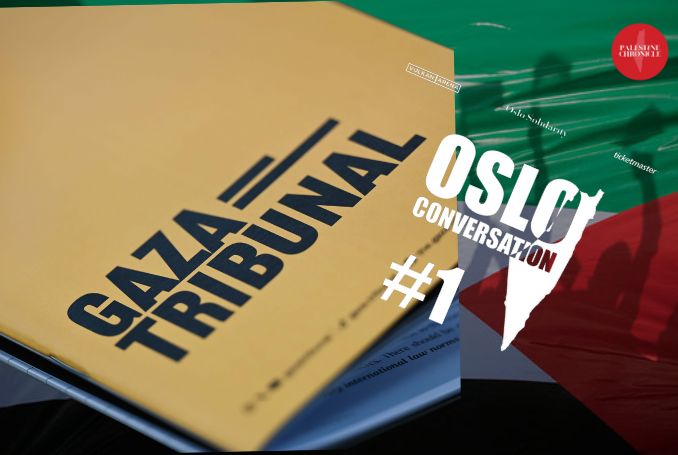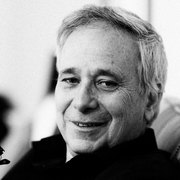
By Ilan Pappe – The Palestine Chronicle 
Yes, I am aware that the rise of right-wing and fascist forces in the West delays progress on Palestine. But Palestinians are part of a powerful global alliance against this tide of fascism.
Much of what happened in historical Palestine in the last year was predictable.
What remains incomprehensible is the total indifference of European governments to a genocide that is broadcast daily on our screens in such graphic detail that no one can doubt its occurrence, brutality, and inhumanity.
This indifference to crimes against humanity, committed openly by countries that deem themselves part of the ‘civilized nations,’ can only be partially explained.
The key lies in examining those countries that have shown some willingness to impose partial restrictions on arms sales to Israel and recognized Palestine.
Predictably, such actions have had no impact on Israel. Even the more proactive states’ measures have proven insignificant. The main reason for this ineffectual response is that these governments continue to operate under flawed assumptions and paradigms.
At best, many of these politicians and diplomats see themselves as peace brokers, often playing a secondary role to the Americans. Occasionally, they have taken the lead. Before 1948, Britain dominated peace brokering, representing the face of international justice. In June 1967, Britain and France were instrumental in Security Council Resolution 242. In 1993, Norway led the Oslo Accord.
The essence of this kind of peace brokering has been to identify the maximum concessions Israel is willing to make in terms of territory or control and impose these terms on the Palestinian side. Peace brokers, both before and after Oslo, have discovered that even these limited concessions are unacceptable to a feeble Palestinian leadership, weakened by years of occupation and oppression.
By now, it should be evident that this formula does not work. Yet, the only conversation about “the day after” remains based on this outdated and irrelevant paradigm.
There are, however, several initiatives aimed at challenging the international community’s insistence on sticking to a paradigm that effectively enables ethnic cleansing and genocide. I will mention two such efforts. These initiatives show that activists for Palestine are not merely content with demonstrations, encampments, writing articles, and staging boycotts. Instead, they continuously seek new strategies and fresh modes of action to address the urgent need to halt genocidal policies on the ground.
‘Oslo Conversation’
The first is the ‘Oslo Conversation’ on Palestine, spearheaded by a group that includes, among others, Mads Gilbert, the renowned Norwegian physician who continues to work in Gaza and South Lebanon. This initiative seeks to offer a corrective to the 1993 Oslo Accord—a project many Palestinians view as one of the West’s greatest betrayals. Rather than achieving peace, Oslo made the Israeli occupation more economical and acceptable.
This new initiative aims to reframe the legacy of ‘Oslo’ by liberating the Norwegian government and society from their pretentious role as peace brokers. Instead, it calls on Norway to act as a defender of Palestinian rights. This shift would transform Norway from a source of proposed solutions to a force showing full and unconditional solidarity with the Palestinian struggle for liberation.
Despite Norway’s oil company investing millions of dollars in Israeli businesses, including those operating in the occupied West Bank, and the government’s obedience to American policy on Israel, Norway can demonstrate solidarity through meaningful actions, not just words.
‘Gaza Tribunal’
The second initiative is the Gaza Tribunal, as reported in the Palestine Chronicle. A group of prominent international jurists is exploring ways to involve the international legal community more effectively in Palestine’s affairs.
Their goal is to end Israel’s destructive policies and enable the reconstruction of Gaza. This initiative is reminiscent of the Russell Tribunal, which held public sessions a few years ago, exposing Israeli occupation crimes with the participation of activists, former diplomats, scholars, and international jurists.
It is difficult to predict how successful these initiatives, or others like them, will be. However, they send an urgent message that needs to be heard.
These efforts reject the mainstream media and political narratives in the West and beyond. Participants in these initiatives categorically reject framing the reality in Palestine as one of parity between colonizer and colonized. They also reject any discussions of a two-state solution, which was central to the Oslo Accord and remains sacrosanct to international law practitioners.
Incorporating members of the political elite and mainstream media, even marginal figures, into these initiatives would be crucial for halting Israel’s current policies. This requires a less purist and more pragmatic approach, seeking allies who may not be ideal long-term partners but can contribute to immediate efforts to imagine a better future.
New Opportunities
Adopting such pragmatism is essential given the harsh realities likely to unfold in 2025. The Netanyahu government, emboldened by Donald Trump’s re-election, has openly discussed its plans. These include ethnically cleansing Palestinians from northern Gaza to the south, settling Jews in these areas, and creating such dense living conditions in southern Gaza that people are forced to leave. Netanyahu has also vowed to annex the West Bank, pushing Palestinians in Areas B and C into Area A.
While the situation is grim, new opportunities for action also emerge. The actions of the increasingly fascist Israeli government may make it easier to expand global solidarity for Palestine, even into previously impenetrable spaces, such as the German, Italian, or American administrations.
But it is not only this new fascist Israel that creates new opportunities for action. They also arise from the cumulative effects of years of solidarity movements.
History teaches us that sustained activism can unexpectedly influence reality, even if its impact remains unseen for now. The immense and tireless efforts of the global solidarity movement with Palestine may one day pierce Israel’s shield of impunity, alleviating the suffering of Palestinians, particularly in Gaza.
What is clear is that these efforts must be doubled and tripled, accompanied by new initiatives like those mentioned.
Yes, I am aware that the rise of right-wing and fascist forces in the West delays progress on Palestine. But Palestinians are part of a powerful global alliance against this tide of fascism. Every success of this alliance brings us closer to the liberation of Palestine.

– Ilan Pappé is a professor at the University of Exeter. He was formerly a senior lecturer in political science at the University of Haifa. He is the author of The Ethnic Cleansing of Palestine, The Modern Middle East, A History of Modern Palestine: One Land, Two Peoples, and Ten Myths about Israel. He is the co-editor, with Ramzy Baroud of ‘Our Vision for Liberation.’ Pappé is described as one of Israel’s ‘New Historians’ who, since the release of pertinent British and Israeli government documents in the early 1980s, have been rewriting the history of Israel’s creation in 1948. He contributed this article to The Palestine Chronicle.